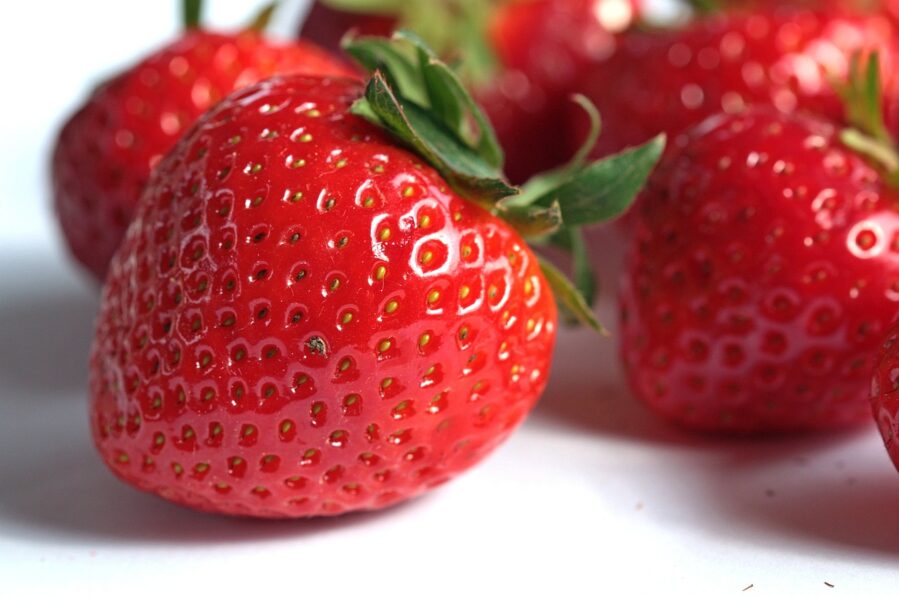New research reveals how this flavonoid found in fruits and vegetables may protect blood vessels from calcium buildup linked to aging and kidney disease
Scientists at Johannes Kepler University Linz have discovered that fisetin, a natural flavonoid compound found in various fruits and vegetables, significantly reduces vascular calcification—the hardening of blood vessels that commonly occurs with aging and chronic kidney disease. The study, published in Aging journal on April 2, provides compelling evidence that this dietary compound could potentially help maintain arterial health in vulnerable populations.
“Fisetin treatment suppressed calcific marker expression and calcification of VSMCs as well as p38 MAPK phosphorylation induced by pro-calcific conditions,” noted the researchers in their study, highlighting the compound’s ability to interfere with the cellular processes that lead to blood vessel hardening.
How Vascular Calcification Threatens Heart Health
Vascular calcification is a serious health concern that increases with age and accelerates dramatically in people with chronic kidney disease. As calcium deposits build up in blood vessel walls, arteries lose their elasticity and become stiff, increasing the risk of heart attacks, strokes, and other cardiovascular events.
When blood vessels harden, they can’t properly expand and contract with each heartbeat, leading to increased pulse pressure, impaired organ perfusion, and added strain on the heart. For patients with kidney disease, who already face elevated cardiovascular risk, this process can be particularly dangerous.
Unlocking Fisetin’s Protective Mechanism
The research team, led by first author Mehdi Razazian and corresponding author Ioana Alesutan, discovered that fisetin’s protective effects work through a specific cellular pathway. The compound increases a protein called dual-specificity phosphatase 1 (DUSP1), which helps regulate inflammatory responses in the body.
This protein acts as a crucial brake on a signaling pathway called p38 MAPK, which normally promotes calcification when activated. The researchers confirmed this mechanism through multiple experiments, showing that when DUSP1 was blocked, fisetin lost its protective effects—demonstrating this protein’s essential role in preventing arterial hardening.
“Mechanistically, fisetin requires the phosphatase DUSP1 to inhibit p38 MAPK in order to mediate its protective effect on VSMC calcification,” the researchers explained in their paper.
Key Findings from the Research:
- Fisetin reduced calcium buildup in vascular smooth muscle cells exposed to high phosphate and calcium conditions that mimic disease states
- The compound remained effective when cells were exposed to blood serum from kidney dialysis patients
- Protective effects were confirmed in isolated mouse arteries and in living mice
- Fisetin’s benefits were lost when the DUSP1 protein was blocked, confirming this mechanism’s importance
These findings are particularly significant for patients with chronic kidney disease, who often experience mineral imbalances that accelerate vascular calcification. When the researchers exposed vascular cells to serum from dialysis patients—a condition known to trigger calcium deposits—fisetin still provided protection, suggesting potential real-world applications.
From Laboratory to Lifestyle: What This Means for Health
While this research represents early-stage findings that require further validation before clinical applications, it adds to growing evidence that fisetin may help protect against age-related damage to blood vessels. The compound naturally occurs in strawberries, apples, persimmons, onions, and cucumbers, though at concentrations lower than those tested in the study.
Could incorporating more fisetin-rich foods into our diets help maintain arterial health as we age? While nutritional approaches alone can’t replace medical treatment for conditions like chronic kidney disease, this research suggests nature may provide some compounds worth investigating further.
As populations worldwide continue aging and rates of kidney disease rise, finding new approaches to protect vascular health remains a critical research priority. Natural compounds like fisetin may eventually complement existing treatments, potentially offering new options for patients at risk of cardiovascular complications.
If our reporting has informed or inspired you, please consider making a donation. Every contribution, no matter the size, empowers us to continue delivering accurate, engaging, and trustworthy science and medical news. Independent journalism requires time, effort, and resources—your support ensures we can keep uncovering the stories that matter most to you.
Join us in making knowledge accessible and impactful. Thank you for standing with us!


Now watch to see how many companies get on the band wagon to sell supplements of fisetin to the unwary.